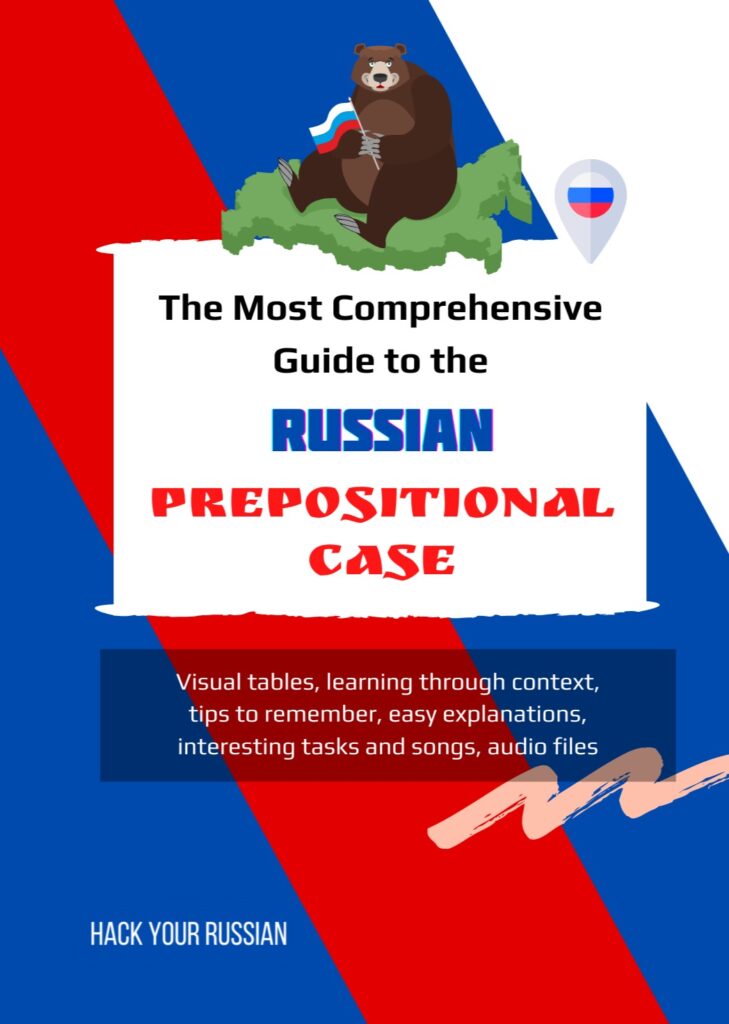Free Russian video lesson – Learn how to encourage, cheer up and praise someone in Russian.
What are the most motivational Russian phrases? How to encourage someone in Russian? I guess every Russian language learner need to learn these phrases as soon as possible in order to be able to cheer up oneself and friends in Russian.
In this free Russian video lesson, you will learn:
- How to encourage people in Russian.
- Great Russian phrases to cheer up someone.
- Useful words to praise someone in Russian.
- How to wish good luck in Russian.
- Some interesting Russian cultural insights and Russian superstions.
These Russian phrases are useful when you want to motivate someone to do something in Russian. This is a free Russian lesson for Elementary students. I recommend you to watch a video first and then you can read a short summary below.
Free Russian lesson “How to encourage and cheer up someone in Russian”
Short summary of a video lesson “How to encourage someone in Russian”.
Here are the main phrases to encourage and cheer up in Russian:
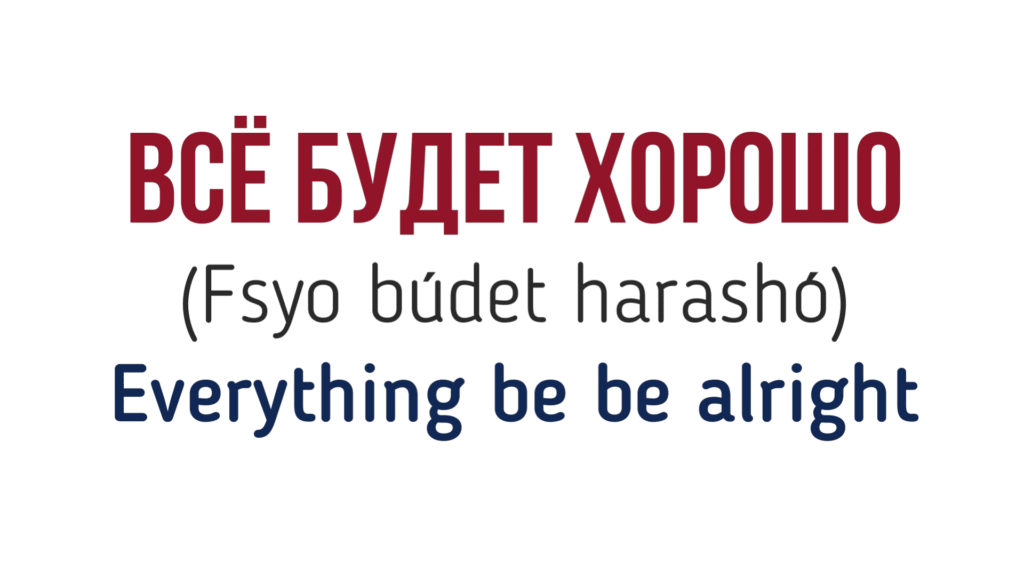
1. Всё бу́дет хорошó (Fsyo búdet harashó) – Everything be be alright
“Всё будет хорошо” is an impersonal, nice and common way to cheer up a person or a group of people in Russian. It can be used in different situations, when somebody is in trouble, in doubts, is afraid of something that might happen. It is both formal and informal. This phrase is used to assure a person or people that they should not worry about something.
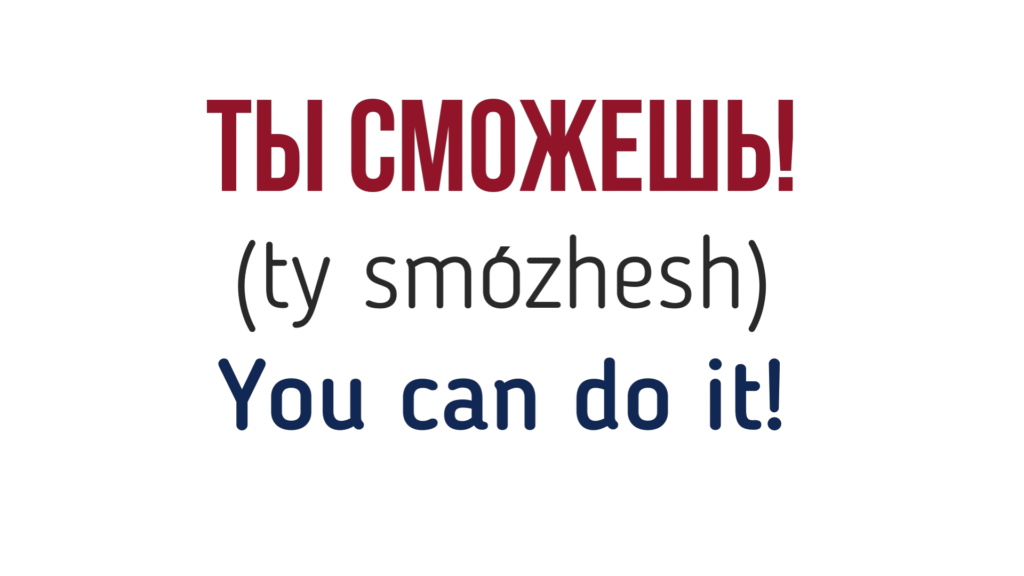
2. Ты смóжешь! (ty smózhesh) You can do it!
“Ты сможешь”implies that a person is capable of doing something physically and mentally. It is an informal future form of the verb МОЧЬ (can, be able to). Ex.: Ты сможешь выучить русский язык (You will be able to learn Russian language).
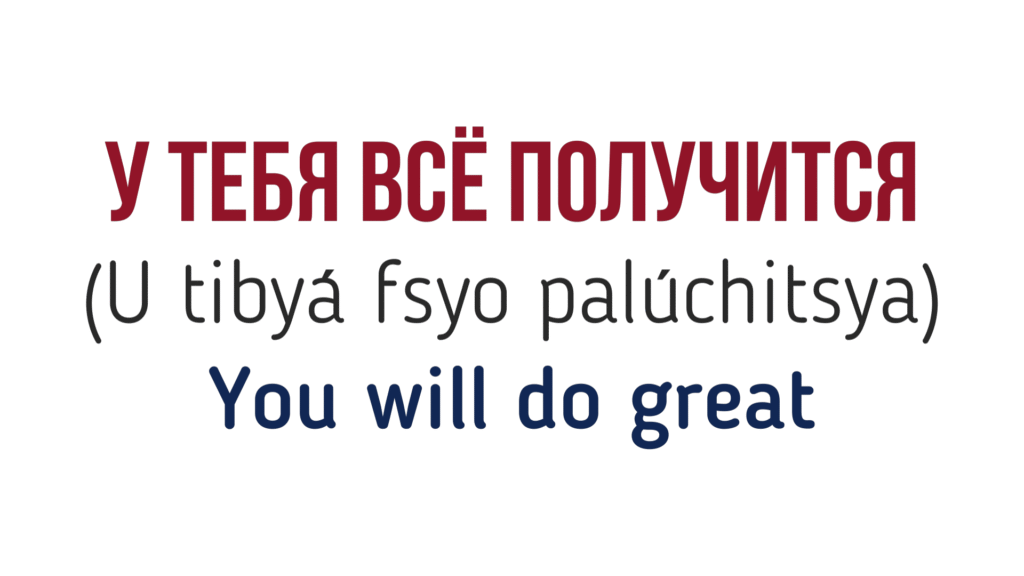
3. У тебя́ всё полу́чится (U tibyá fsyo palúchitsya) – You will do great
У тебя́ всё полу́чится or У тебя́ полу́чится
Formal / Plural form is “У вас всё полу́чится” (u vas fsyo paluchitsya)
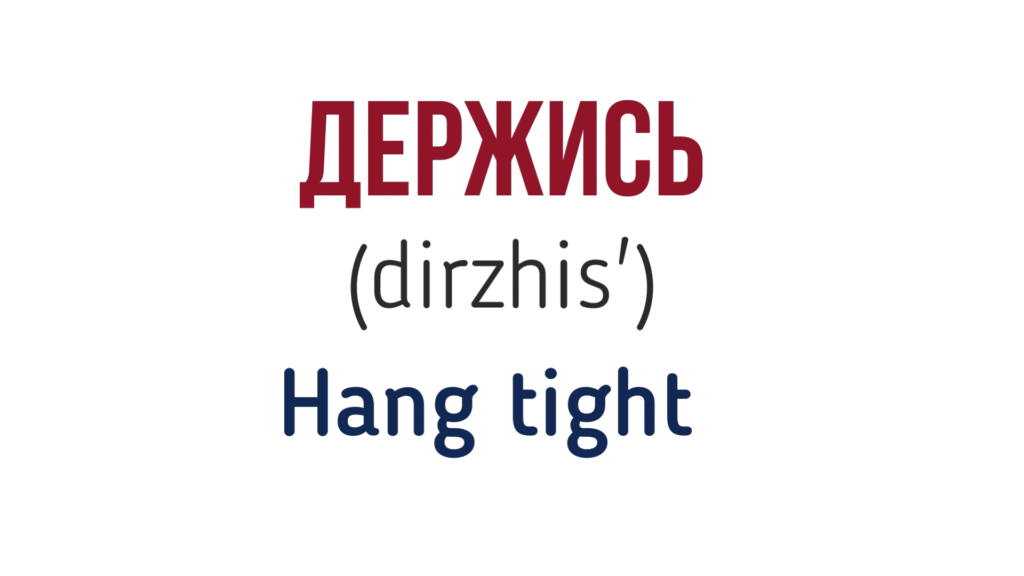
4. Держи́сь (dirzhis’) – Hang tight
“Держи́сь”is a way to encourage someone to be strong and fight for smth (illness, competition, trouble).
Formal / Plural form – Держи́тесь (dirzhites’)
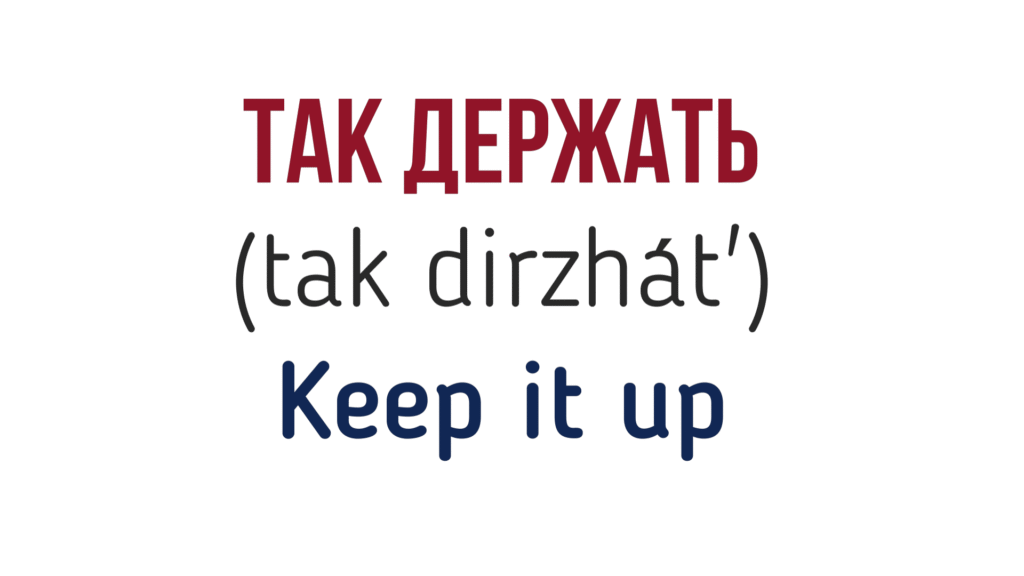
5. Так держáть (tak dirzhát’) – Keep it up
It is an impersonal way to praise somebody for what they are doing and to wish to continue the same way and not to give up.
“Держáть” means to hold. This expression comes from sailors (an order to the helmsman to keep the ship on course)
6. Other versions:
Продолжа́й в том же ду́хе (pradalzhái f tom zhe dúhe) – Keep it going (informal)
Продолжа́йте в том же ду́хе (pradalzháite f tom zhe dúhe) – Keep it going (plural / formal)
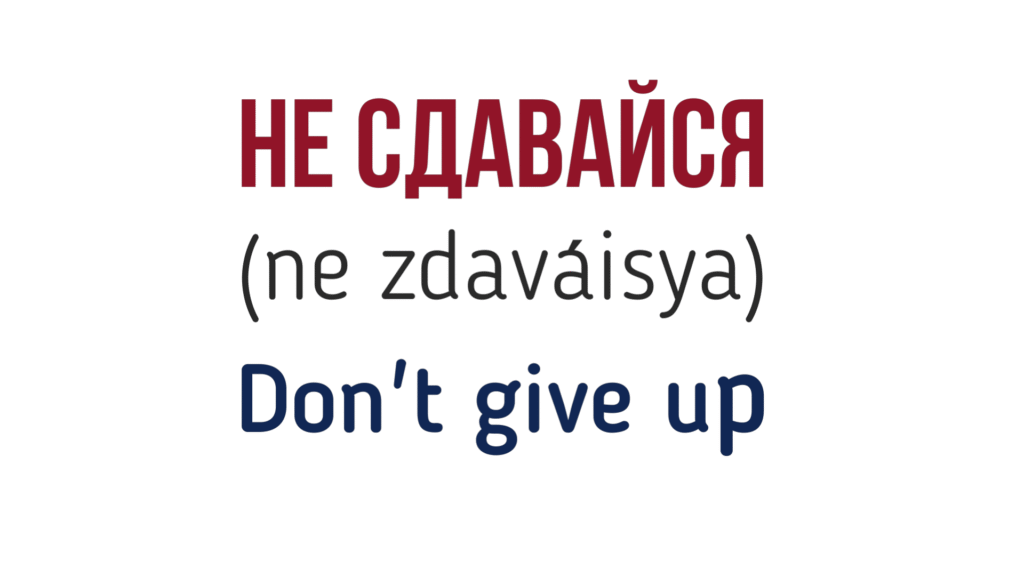
7. Не сдава́йся (ne zdaváisya) Don’t give up
It is a way to boost someone’s morale when you see that a person wants to give up.
Infinitive form – сдава́ться (to give up). Ex.: Нельзя сдава́ться (impersonal)
Formal / Plural form – Не сдава́йтесь (ne zdavaites’)
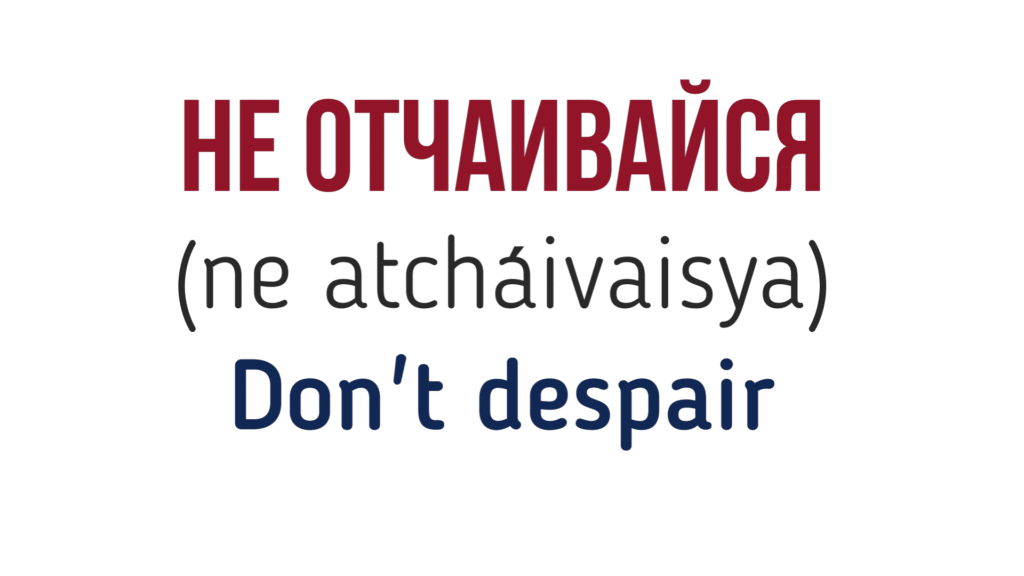
8. Не отча́ивайся (ne atchа́ivaisya) Don’t despair.
Infinitive form – отча́иваться (to be in despair). Ex.: Нельзя́ отча́иваться (impersonal).
Formal / Plural form – Не отча́ивайтесь (ne atcháivaites’).
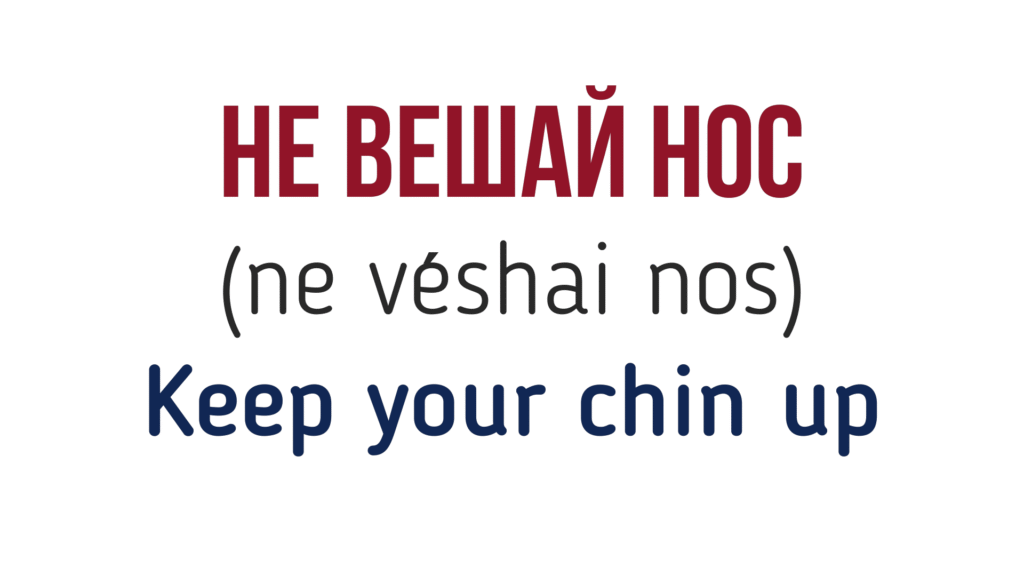
9. Не ве́шай нос (ne véshai nos) – Keep your chin up
This expression comes from the world of music.
Formal / Plural form – Не ве́шайте нос (ne véshaite nos)
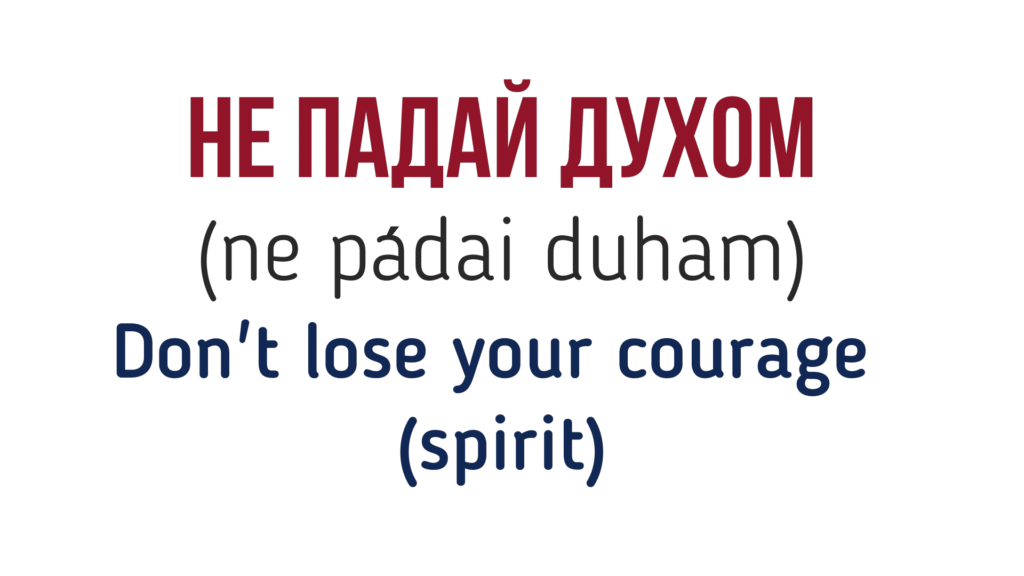
10. Не па́дай ду́хом (ne pádai duham) – Don’t lose your courage (spirit)
Direct translation: don’t fall by the spirit
Formal / Plural form – Не па́дайТЕ ду́хом (ne padaite duham)
Summary of phrases to praise someone in Russian you can find in another blog post – “How to praise someone in Russian”.
Summary of phrases to wish someone good luck in Russian you can find in another blog post – “How to wish someone good luck in Russian”.
Summary of phrases to wish something nice in Russian are available in another blog post – “Good wishes in Russian”.
If you have recently started to learn Russian language, you should absolutely have my free guide ‘Essential Russian Words and Expressions to Understand Spoken Russian’.
It’s also very important to know how to pronounce Russian words correctly as not every Russian letter is pronounced the same way as it’s written. There are certain Russian pronunciation rules that are really easy to learn.
If you wish to speak Russian, you should absolutely learn how to use Russian cases. Check the most comprehensive guides to Russian cases:

